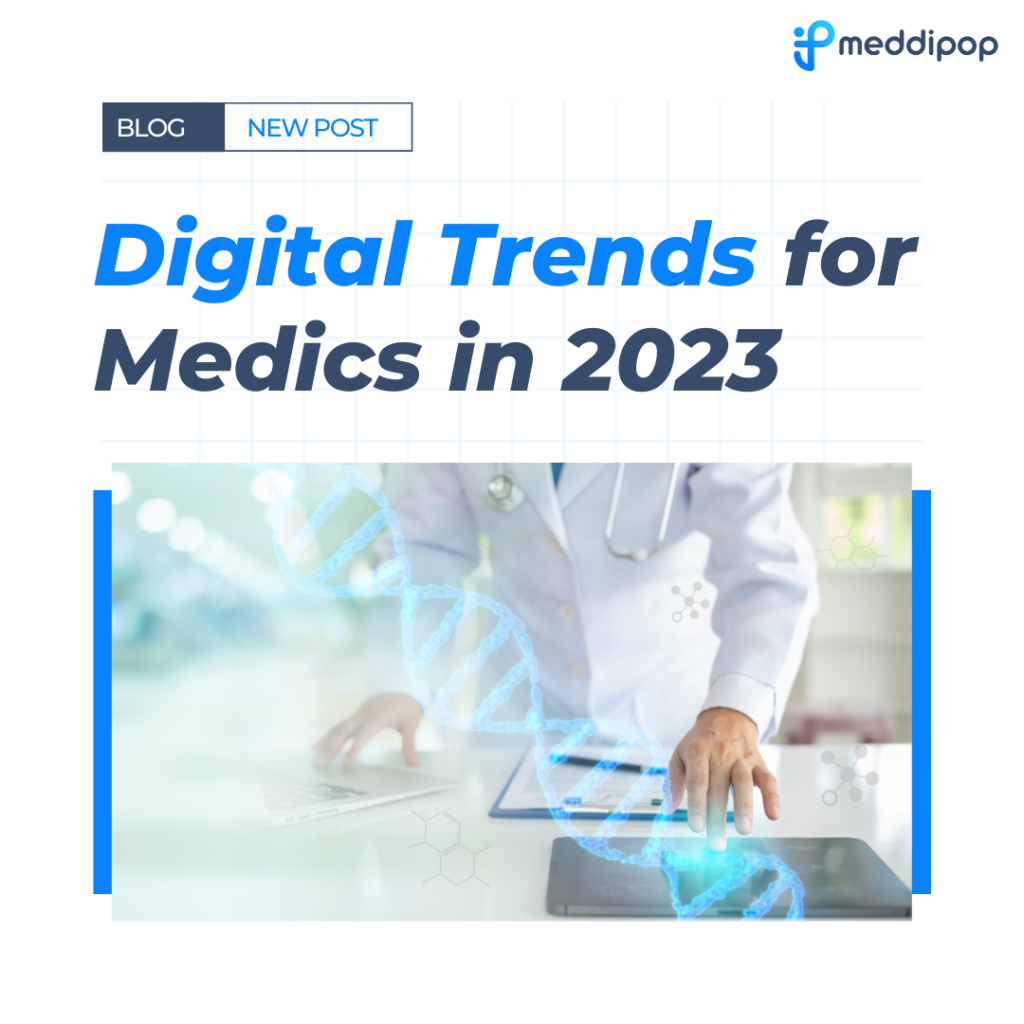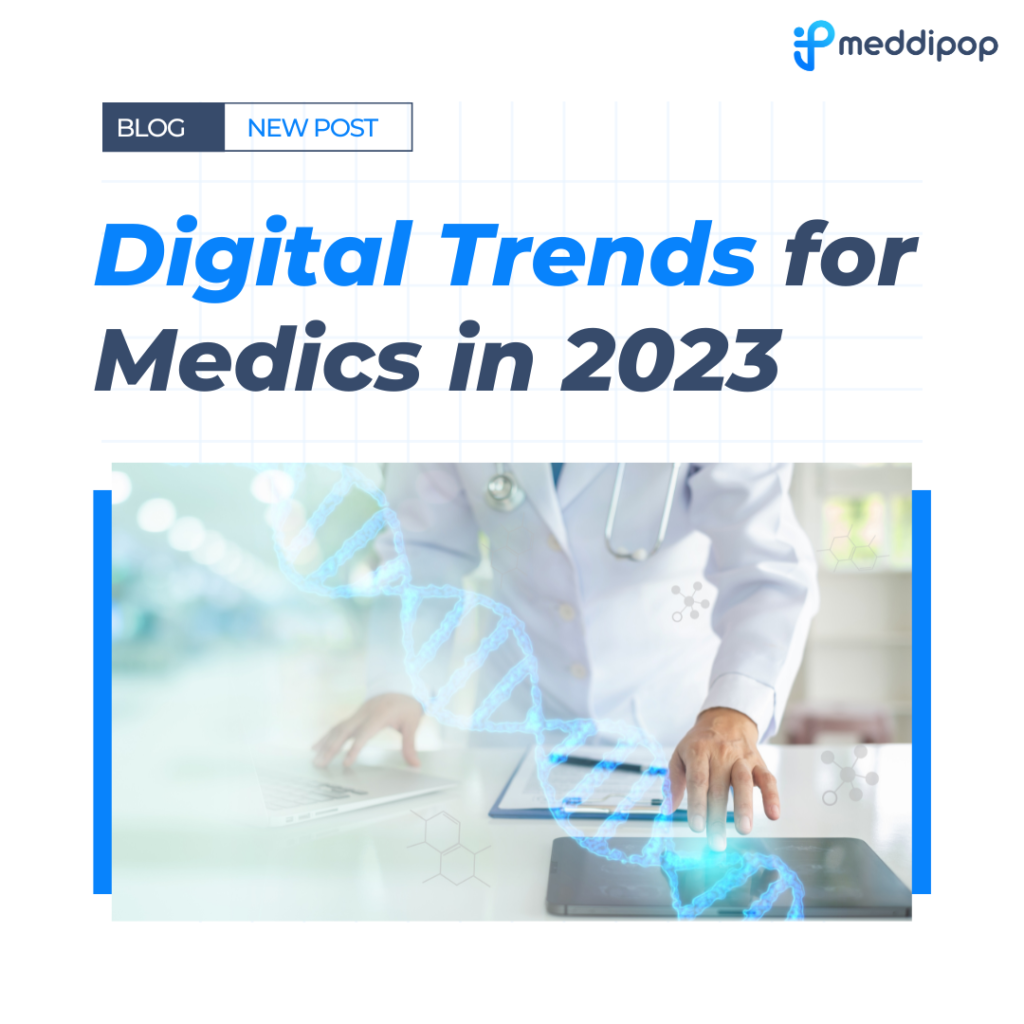Digital trends have revolutionized the medical industry, bringing about unprecedented levels of efficiency, accuracy, and convenience for both patients and medical professionals. The information age has become a global phenomenon and the technology that is being developed today will most likely shape healthcare in 2023. Here are some of the digital trends that medics should keep an eye on.

Telemedicine
Telemedicine has been on the rise for several years now, but its importance has been highlighted in the wake of the COVID-19 pandemic. Telemedicine refers to the use of digital technology to provide remote medical consultations, diagnoses, and treatments. It has become increasingly popular due to its convenience, affordability, and ability to provide medical care to people in remote or underserved areas. In 2023, we can expect telemedicine to become even more prevalent, as healthcare systems continue to prioritize virtual healthcare as part of their overall strategy.
Artificial Intelligence (AI)
AI has already made significant inroads in the medical industry, with applications ranging from diagnostics to personalized medicine. In 2023, we expect AI to be increasingly integrated into clinical decision-making processes. AI-powered tools such as Meddipop will be used to analyze vast amounts of patient data to identify potential clients according to their health issues and develop personalized treatment plans.
Exciting developments in AI-powered tools are transforming the healthcare industry. Meddipop is at the forefront of this revolution, providing cutting-edge solutions that analyze vast amounts of patient data to identify potential health issues and develop personalized treatment plans.
AI will also be used to automate administrative tasks, such as scheduling appointments and managing patient records, freeing up medical professionals to focus on patient care.
Big Data
The healthcare industry is generating more data than ever before, from electronic health records to medical imaging scans. This data can be used to improve patient outcomes and advance medical research. In 2023, we can expect to see increased emphasis on leveraging big data to develop new treatments and improve patient care. Healthcare systems will invest in data analytics tools and algorithms to analyze large datasets, identify patterns, and gain insights that can inform medical decision-making.
Wearable Technology
Wearable technology, such as smartwatches and fitness trackers, has become popular among consumers for tracking physical activity and monitoring health metrics. In 2023, we can expect wearable technology to become increasingly sophisticated, with the ability to monitor more health parameters, such as blood glucose levels, blood pressure, and heart rate variability. This data can be integrated with electronic health records and analyzed to provide personalized health recommendations and interventions.
Virtual and Augmented Reality (VR/AR)
Virtual and augmented reality have already been used in medical education and training, but in 2023, we can expect to see increased use of these technologies in patient care. VR/AR can be used to simulate medical procedures, allowing medical professionals to practice and improve their skills without putting patients at risk. It can also provide patients with immersive experiences that can aid in their recovery, such as using VR to distract patients during painful procedures.
Blockchain
Blockchain technology has the potential to transform healthcare by improving the security, privacy, and interoperability of medical data. In 2023, we expect to see increased adoption of blockchain in healthcare, with applications ranging from secure medical data sharing to supply chain management.
Blockchain can also be used to develop decentralized healthcare systems that empower patients to control their medical data and access medical services on a global scale.
In conclusion, the digital trends that are shaping our world offer exciting opportunities for medical professionals to improve patient care and advance medical research.
However, it is important for medics to stay up-to-date with these trends and to invest in the necessary technology and training to take full advantage of their potential. By embracing digital innovation, medical professionals can help shape the future of medicine and provide better healthcare for all.



